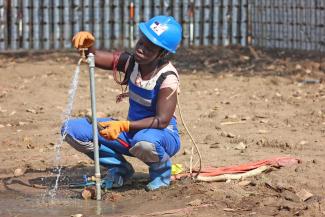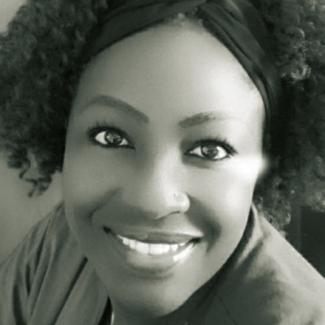Refugees and integration
Female Empowerment in Uganda

The bilateral German development agency GIZ (Deutsche Gesellschaft für Internationale Zusammenarbeit) is supporting inclusive socio-economic opportunities for refugees and host communities in six West Nile districts. The project is cofunded by the European Union Trust Fund and Germany’s Federal Ministry for Economic Cooperation and Development (BMZ).
It provides access to financial services and markets, offers capacity building and skills training. The idea is to generate income and employment through farming and off-farm activities. Off-farm activities include agro-processing, branding and packaging, as well as the launching of startups (MSME – micro, small and medium enterprises).
To date, about 3000 women have received vocational training, while more than 4500 women are members of farmer groups trained in good agronomic practice and climate smart agriculture. About half of the project’s participants are refugees and the other half consists of members of the host community. Women have created their own support groups which enable economic growth and support. Others get psycho-social support from the groups.
The focus of the project is to create an enabling environment for self-reliance and resilience among refugees and host communities. The point is that an emergency response is not enough, as long-term development is needed too. Empowering members of the refugee and the host communities serves both purposes. Addressing both communities helps to avoid the worsening of disparities. To some extent, it also addresses the problem of “othering” in the sense of aggressive identity politics.
Experience shows that this approach encourages women to step out of their traditional roles. Indeed, a considerable number are now active in in male-dominated trades like plumbing, carpentry and welding/metal fabrication. For those who have ventured into these trades, it has proven easy to find jobs. Employment is harder to get in traditionally female trades like hairdressing or tailoring. (For a project that empowers rural women in Malawi, see Rabson Kondowe on www.dandc.eu.)
Roselyn Davina Vusia is working for the German development agency GIZ (Deutsche Gesellschaft für internationale Zusammenarbeit) in Uganda. She is Deputy head of RISE, a project aiming to create inclusive socio-economic opportunities for refugees and host communities.
roselyn.vusia@giz.de













